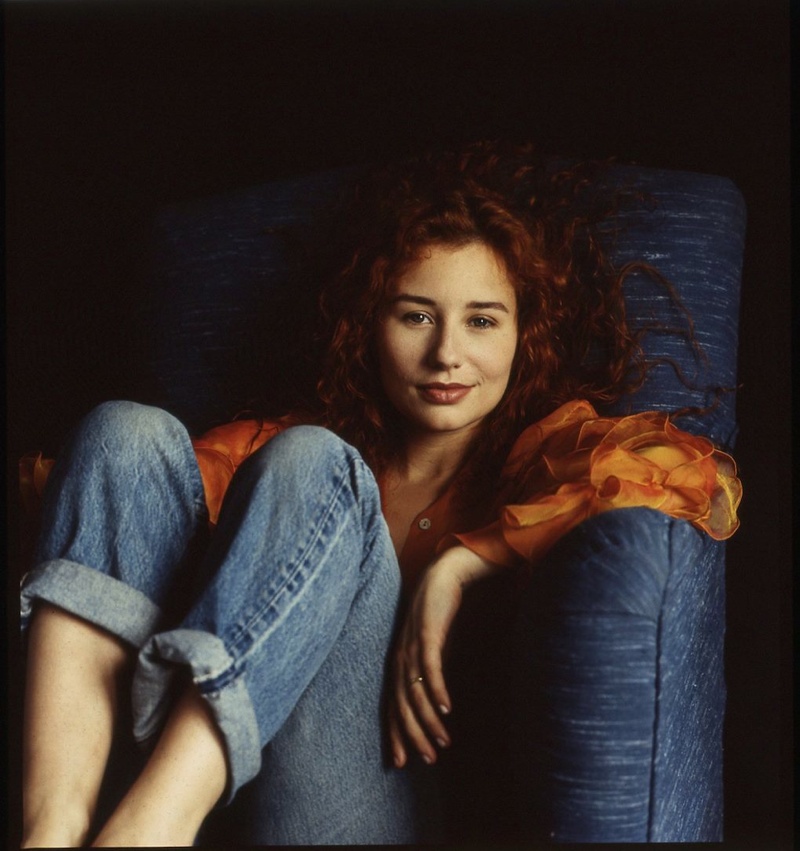The album was released only in the UK at first. Though she's an American, the album wasn't released in the US until over a month later. Apparently the thinking was that she might not be as appealing to Americans, but the concern was unnecessary.
It's hard to express what a brilliant artist Tori Amos is. She does three things and is stellar at each one: songwriting (alternating between frankly confessional and slyly cryptic), singing (at its most mellifluous on this album but capable of being much more raw), and piano playing (classically trained but with pop and jazz sensibilities).
Whether or not Little Earthquakes is her best album, it's at least the essential starting point for approaching her decades-long body of work.
Rolling Stone's "track-by-track guide to Little Earthquakes" quotes her talking about the long process of self-realization that led to creating her solo debut after leaving an unsuccessful band — here's an excerpt:
"Coming out of beating myself up about the choices I had made, I just rolled up my sleeves and grasped at all of the poetry that had ever meant anything to me," Amos says. "From Rimbaud to Baudelaire, e.e. cummings, Emily Dickinson, and also the visual artists. I surrounded myself with the stories and the thinkers that formed me, not what those that had the power to push the button wanted me to be formed with."
"Silent All These Years" is quintessential early Tori Amos — the rare songwriter who can pull off rhyming a whole phrase with itself:
So you found a girl who thinks really deep thoughtsThe sudden feeling of uplift and release in the bridge ("years go by...") is exhilarating.
What's so amazing about really deep thoughts?
(Live solo.)
In "Precious Things," she delves into themes of Christianity, gender, beauty, sexuality, and humiliation, over a relentlessly driving rhythm.
(Live solo, starting with her explanation of why she played the piano in that fast style.)
In "Crucify," Tori, whose father was a minister, again addresses Christianity ("Got enough guilt to start my own religion"):
(Very different live version.)
"Winter" is the emotional centerpiece of the album — a startlingly intimate ballad.
(Live solo.)
Near the end of Little Earthquakes, in "Me and a Gun" (the least musically interesting but most lyrically arresting song on the album), Tori leaves her piano aside and recounts her harrowing experience of being raped. She explained in an interview:
In the song I say it was "Me and a Gun," but it wasn't a gun. It was a knife he had. And the idea was to take me to his friends and cut me up, and he kept telling me that, for hours. And if he hadn't needed more drugs, I would have been just one more news report where you see the parents grieving for their daughter.
And I was singing hymns, as I say in the song, because he told me to. I sang to stay alive. Yet I survived that torture, which left me urinating all over myself and left me paralyzed for years. That's what that night was all about, mutilation, more than violation through sex.
I really do feel as though I was psychologically mutilated that night, and that now I'm trying to put the pieces back together again. Through love, not hatred. And through my music. My strength has been to open again, to life, and my victory is the fact that, despite it all, I kept alive my vulnerability.
Continuing the theme of "vulnerability," she sings in "China":
Sometimes, I think you want me to touch youFew albums keep vulnerability alive as beautifully and daringly as Little Earthquakes.
How can I, when you build the great wall around you?

0 comments:
Post a Comment